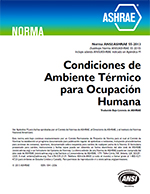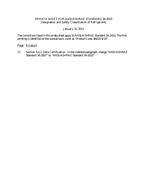Description
There is a necessity to reduce energy consumption in the building sector to mitigate the associated carbon emissions, which, globally, account for 39% of total emissions. Several factors have to be considered in the effort to reduce energy consumption. Among them, building occupancy is one of the key drivers in the operation of building services and hence leading to energy consumption and its associated carbon emissions. Information regarding building occupancy at different times of the day or year could potentially help to enhance the energy and environmental performance of buildings. This study investigated the performance of two machine learning models (Hidden Markov Model and Artificial Neural Network) in predicting the occupancy numbers of a highdensity higher education building in England that was used as the case study. The models were developed using high-resolution actual occupancy data obtained at five-minute intervals for 12 months, covering workdays, weekends, holidays, and vacations. Occupancy data were collected using high-accuracy infrared video image sensors to cover the gap in the paucity of occupancy data in such buildings and to eliminate the uncertainties faced in previous studies. Several statistical analyses, such as principal component analysis and cross-validation, were conducted to ensure that optimal inputs are used for developing and evaluating the models. The results of the two occupancy prediction models developed indicated that the Hidden Markov Model performs better than the Artificial Neural Network in predicting occupancy numbers.
Product Details
- Published:
- 2023
- Number of Pages:
- 9
- Units of Measure:
- Dual
- File Size:
- 1 file , 2.5 MB
- Product Code(s):
- D-AT-23-C080
- Note:
- This product is unavailable in Russia, Belarus




